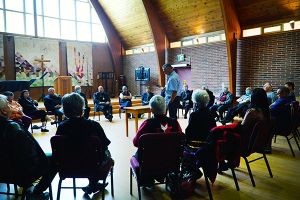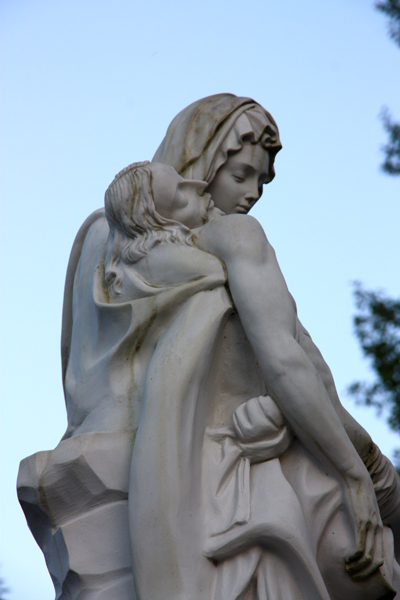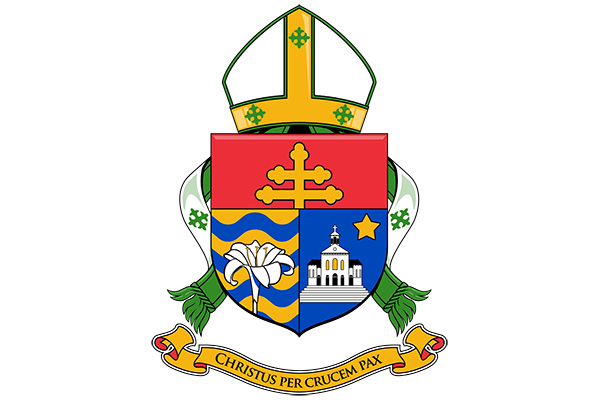

Last week the Vatican officially repudiated the Doctrine of Discovery with a joint statement released by the Dicasteries for Culture and Education and for Promoting Integral Human Development. In the document they uphold “fidelity to the mandate received from Christ, the Catholic Church strives to promote universal fraternity and respect for the dignity of every human being. “
The Church continues to acknowledge it’s part in the horrific residential school system. As we journey together with indigenous communities we seek to find a way towards healing and reconciliation. One action called for by Indigenous peoples is to rescind that Doctrine of Discovery. When Pope Francis made his pilgrimage to Canada in July 2022 this request was front and centre. This statement from the Vatican is in response to the request. The Vatican document acknowledges both this request and the damage done by the Doctrine of Discovery:
“It is in this context of listening to indigenous peoples that the Church has heard the importance of addressing the concept referred to as the “doctrine of discovery.” The legal concept of “discovery” was debated by colonial powers from the sixteenth century onward and found particular expression in the nineteenth century jurisprudence of courts in several countries, according to which the discovery of lands by settlers granted an exclusive right to extinguish, either by purchase or conquest, the title to or possession of those lands by indigenous peoples. Certain scholars have argued that the basis of the aforementioned “doctrine” is to be found in several papal documents, such as the Bulls Dum Diversas (1452), Romanus Pontifex (1455) and Inter Caetera (1493).
The “doctrine of discovery” is not part of the teaching of the Catholic Church.”
Read the full statement on the Vatican website by clicking here.
The Canadian Conference of Catholic Bishops highlighted the release of the Vatican statement with a message of their own. You can read the CCCB message on their website and by clicking here.
Locally, Archbishop Dunn continues to make pastoral visits with the Mi’kmaq communities in the Archdiocese of Halifax-Yarmouth. He has sat in listening circles with the communities of Acadian First Nation, Annapolis Valley First Nation, Glooscap First Nation, and Millbrook First Nation. Plans are currently being worked on to visit Bear River First Nation and Sipekne’kaick Frist Nation soon.
Let us continue to pray that we, indigenous and non-indigenous people of this land can continue to find ways to find ways bring about healing and reconciliation.
Decrees of Our New Parishes

You can find a list of
Decrees of Our New Parishes
under the "Parishes" tab and click on "Our New Parishes"
or click here.
Archdiocesan Crest
Chancery Contact
Deacon Robert Doyle
Chancellor
(902) 429-9800 ext. 307
Archdiocesan Funeral Guidelines
Archbishop Mancini in collaboration with the clergy, religious and lay faithful of our Church of  Halifax-Yarmouth prepared the document on Catholic funerals in the Archdiocese of Halifax Yarmouth. The document is titled "Catholic Funerals: Theological and Pastoral Considerations".
Halifax-Yarmouth prepared the document on Catholic funerals in the Archdiocese of Halifax Yarmouth. The document is titled "Catholic Funerals: Theological and Pastoral Considerations".
The document touches on the frequent experience in our faith communities that funerals draw people with diverse connections to the Catholic faith or faith in general. Liturgical options, specifically the separation of the Funeral Rite (Order of Christian Funerals) and the celebration of the Eucharist, can facilitate a fuller involvement of mourners at Catholic funerals. As well new opportunities are presented to evangelize and catechized a Christian understanding of life, death and resurrection. For the faithful the opportunity to celebrate Eucharist at a memorial Mass within a short time of the funeral liturgy can be much more meaningful experience of communion.
This guidelines addresses issues like eulogies, use of Christian symbols at funerals, cremation, and the celebration of the funeral rite at funeral parlors as well as other points to assist parish personnel in the ministry to those who are grieving.
download: English (pdf) French (pdf)

